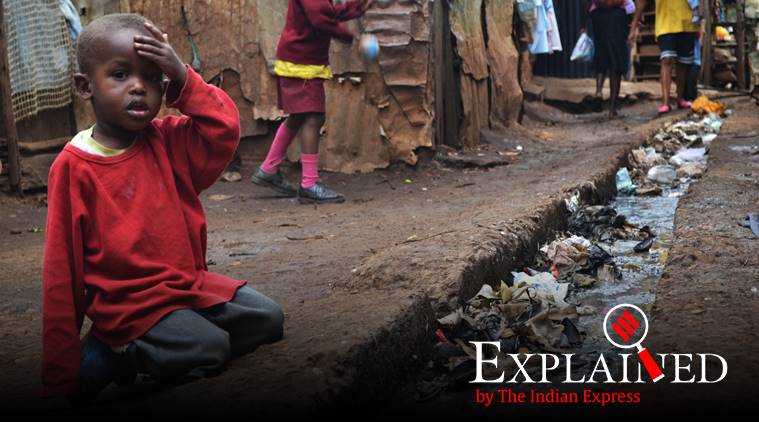Explained: In Kenya’s digital ID system, echoes of India’s Aadhaar
by Mehr GillWritten by Mehr Gill | Updated: January 31, 2020 7:46:40 pm

A Kenyan government brochure about NIIMS has referred to it as a database where information will be centrally consolidated and has called it the “soul (sic) source of information on a person’s identity”. (Photo courtesy: Creative Commons)
The Kenyan government has come up with a new digital identification system, as part of which each citizen will be assigned a Unique Identification Number (UID) or the “Huduma Namba” (as it is referred to in Swahili), sparking fears among Kenya’s ethnic and religious minority communities who claim that are facing more stringent rules to procure documents that are needed to get a Huduma Namba. The biometric project is being led by the Kenyan Interior Ministry and is called the National Integrated Identity Management System (NIIMS). In India, the UID is referred to as Aadhaar.
Kenyan demography
According to the University of Pennsylvania’s African Studies Center, there are over 70 distinct ethnic groups in Kenya, ranging from about seven million Kikuyu to roughly 500 members of El Molo. Kikuyu is the largest ethnic group in the country, constituting about 20 per cent of the country’s population. Even so, members of the Kikuyu group are “disproportionately represented in public life, government, business…”. This has been one of the reasons for interethnic rivalries and resentment over Kikuyu members’ dominance in politics and government. Furthermore, the main non-indigenous ethnic groups include the Arabs and Asians, which also includes Indians. There are also the Nubians, who are one of the oldest communities in the country. The Nubian Rights Forum, however, adds: “…but to date are still a community with no clear direction, identification, recognition and integration within the current Kenyan government and society at large.”
What is NIIMS?
A Kenyan government brochure about NIIMS has referred to it as a database where information will be centrally consolidated and has called it the “soul (sic) source of information on a person’s identity”. A briefing paper published by the Open Society Justice Initiative (OSFI) has defined NIIMS as a “national population register”, which will be the “single source of information about Kenyan citizens and foreigners resident in the country.” Reflecting on the fear among Kenya’s minority communities a report in The New York Times said, “But as in India, where the government has come under withering criticism for forcing nearly 2 million people to prove their citizenship or risk being declared stateless, Kenya’s program has been denounced for further marginalizing already vulnerable populations.”
Significantly, the government in Kenya has maintained that registering in NIIMS will be necessary to have access to all public services such as healthcare, housing, voting rights, driving license and passport making it difficult and some cases impossible to opt-out of the system. In India, however, registering with the Unique Identification of Authority of India (UIDAI) to get Aadhaar is voluntary, but is mandatory to access most government schemes and to pay ones taxes.
What kind of information is collected to register for NIIMS?
As per the OSFI briefing paper, the kind of information which will be collected for the purposes of the Huduma Namba includes place of birth, parentage, marital status, education background, employment status and biometrics including fingerprints and a photograph.
In January 2019, the Nubian Rights Forum (NRF) filed a case with the High Court of Kenya challenging the constitutionality of NIIMS and the amendments that led to its creation. The High Court ruled on the matter on Thursday and has essentially halted NIIMS until new data protection laws are enacted.
Essentially, the NRF case brings to light the non-transparency “and noncompetitive manner in which the NIIMS contract was awarded, the use of a miscellaneous amendments bill to pass substantive amendments, the lack of public participation in the process, concerns over data privacy and protection, the right to information, and the risk the system could further entrench discrimination of marginalised groups in Kenya”. Significantly, in April 2019, a Nairobi High Court ruled that the government could proceed with mass data collection but prevented them from making registration to the NIIMS mandatory, collecting DNA and GPS data, setting a deadline for enrolment and sharing data between agencies or to third parties.
📢 Express Explained is now on Telegram. Click here to join our channel (@ieexplained) and stay updated with the latest
For all the latest Explained News, download Indian Express App
0 Comment(s) *
* The moderation of comments is automated and not cleared manually by indianexpress.com.